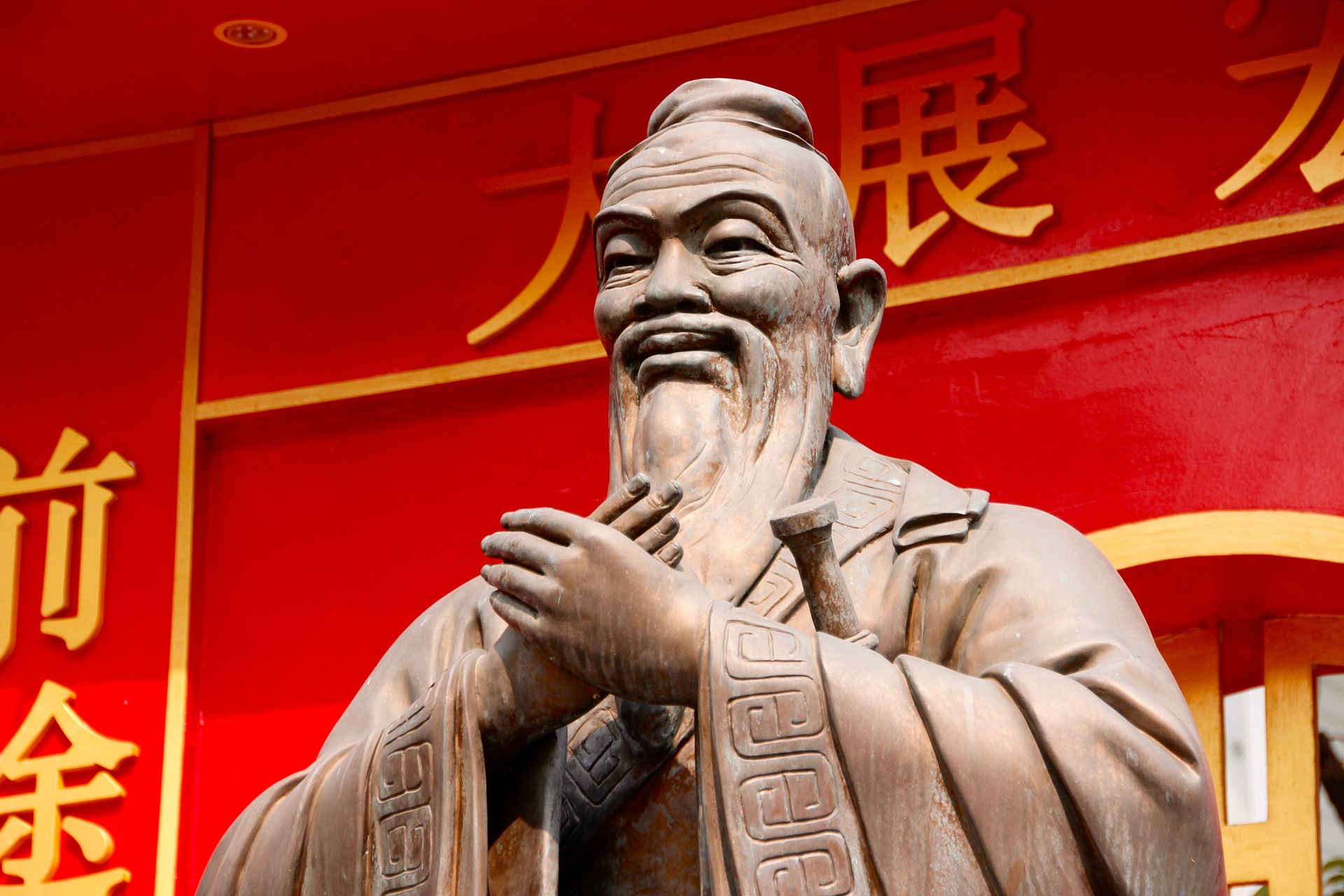A Fundamental Leadership Question (Part 2)

Is Amoral Leadership Best?
I left off last week with an unresolved question. Does it matter if a leader behaves in an ethical manner? Does integrity help or hinder the leader? Might we be teaching managers and leaders the wrong things when we have classes on leadership ethics? Could it be best for a leader to be amoral?
Clearly, there are figures from the past who articulate a contrarian viewpoint. They advance the idea that ethics and religion get in the way of true leadership. Indeed, most strong leaders throughout history, even those viewed favorably, have not hesitated to act in a manner most would call immoral. Sometimes the immorality was tangential to the task of leadership (such as having an extra-marital affair). However, often, the unethical activity was central to the leadership role.
To pursue the question philosophically may not render a satisfactory conclusion for those tasked with the messy business of governance. Ideology is open to the accusation that it is unrealistic and impractical. For example, I have yet to hear of a successful replication of Plato’s idealized Republic. So perhaps it might be good to explore historic examples in which leadership was built on strong ethical practice.
Perhaps China Can Help
My initial thought about how to quell the arguments of those who advocated amoral leadership was to look to ancient China. Somewhere in the back of my brain I remembered that the ethical framework of Confucianism was adopted as the prerequisite qualification for leadership early in the history of China. I began to ponder whether the Chinese, with their long view of history, might have decided that unethical leadership behavior was a short-term expedient that caused long-term damage. Could it be that for a nation to be shaped for greatness over the long-haul, its leaders must exhibit virtue?
This idealistic hypothesis sent me on a quest for better information. I quickly hit pay-dirt. The ancient Zhou dynasty or Zhou kingdom (1045 – 256 BC) was the longest period of Chinese recorded history. Though shrouded in mythology, its kings were viewed as ethical leaders who saw it as their duty to rule with integrity. The Zhou people worshiped a supreme deity known as Tian (meaning “sky” or, more typically, “heaven”). The Zhou kings propagated the idea that their rule resulted from a mandate from Tian. As long as they ruled justly, consistent with the mandate of heaven, they would keep their privileged position and be entitled to all the benefits of rule. Hence, during the Zhou dynasty, the people saw leadership as a stewardship granted by Tian as long as the leaders proved worthy.
The long reign of the Zhou kings may give strength to our hypothesis that ethics and leadership should go hand in hand. And there were certainly examples of incredibly ethical leaders such as the Duke of Zhou who at the Zenith of his power, gave power back to the legitimate king. But all was not rosy. As corruption developed around the throne in this feudalistic empire, the people wondered why Tian did not revoke the mandate. Perhaps there was no real mandate after all. It seems that right about the time Plato was publishing his great work of ethics and political science, the Republic (c. 380 BC), several thinkers in China were exploring ideas more akin to Machiavelli’s realpolitik approach to leadership. The viewpoint which evolved came to be known as Fajiia or Legalism.
The Legalistic school of thought advocated a pragmatic, structured, centralized bureaucracy governed by laws and rules devoid of any ethical framework. Indeed, those entrusted with leadership exerted influence through selecting competent subordinates and then taking hands off. This approached expressed the concept of wu wei (active inaction) central to Taoism.
The Qin Dynasty and Amoral Leadership
The rulers of the Qin state in the heart of central Asia brilliantly began to apply the Legalist philosophy to the daily problems of leadership and governance – and to their ambitions. They were so effective, that this small provincial group was able to systematically conquer a significant portion of what is now eastern China. In 221 BC their leader, Qin Shi Huang, became the first emperor of the unified Middle Kingdom.
The Qin dynasty only lasted about 14 years and collapsed due largely to the severity of its laws and the heavy burden of taxes. However, their uniformly pragmatic (and amoral) approach to governance accomplished amazing things. Though they burned all books except the most pragmatic (Confucianism = burned; medicine = preserved), their list of feats included (1) standardizing money, weights, and measures; (2) developing a uniform writing system; (3) building the Great Wall of China; (4) developing one of the most extensive irrigation systems which is still in use today; (5) created an amazing system of roads and canals; and (6) finding time to build an entire army of Terracotta warriors. They were accused of being brutal tyrants, but no one could claim Emperor Qin Shi Huang and his subordinates were underachievers.
The Han Dynasty and the Focus on Ethical Leadership
After a brief period of uncertainty following the death of China’s first emperor, the Han formed a dynasty that lasted over 400 years. Originally they adopted the legalist ruling philosophy of the Qin, though they applied it in a more humane way in order to gain popular support. However, around 135 BC, a young and ambitious Emperor named Wu, resurrected the Confucian ethical system and made it central to the selection of those who would aspire to leadership. An educational system based on the great Confucian texts was put in place and a series of exams determined the level and rank of all civil servants. Only the greatest ethical scholars could rise to the Emperor’s inner circle of advisors.
The system of leadership selection based on knowledge of classical Confucian texts lasted for over 2000 years. Though the curriculum and testing system went through refinements over the years, the core concept of governance by those thoroughly trained in the values and ethics espoused by the great sages of antiquity remained. So is this a strong example of an effective, practical leadership philosophy built on ethics that was used effectively for two millennia? Maybe not.
The Demise of My Hypothesis
It would definitely seem that Confucian scholars populated the ruling classes of China for many years. This merit-based approach to selecting civil servants resulted in the development of a school system which put classic Confucian texts at the core of study, providing united perspectives and values across the great expanse of Chinese society. However, as we all are aware, book learning does not always make its way into practice.
Although in time all officers of government were selected on the basis of their mastery of a Confucian curriculum of study, because this was the only path to power and prestige, those who embarked upon it were often merely self-serving men of ambition. Some officials truly reflected the ethical values of their training, but the greater portion were merely career men, who employed Confucian rhetoric to achieve personal goals at any cost necessary to those they ruled.
It would appear that even Emperor Wu had little interest in diverging from the amoral Legalist approach to governance adopted during the Qin dynasty. Rather, the plan provided a convenient way to eliminate powerful administrators loyal to his grandmother. The early emperor Wang Mang of the short-lived Xin dynasty (AD 9-23) tried to actually base government around Confucian ideals but ultimately the attempt proved ineffective.
What a mess! I guess China doesn’t provide us with a sustained historical example where strong ethical integrity accompanied leadership. Must we, then, surrender the idea that there are “moral qualifications” for leadership? Stay tuned as I continue to explore the idea in the next installment.

